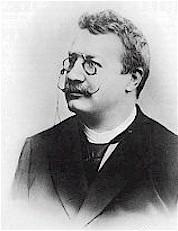1620 - 1701 Person Name: Adam Drese, 1620-1701 Hymnal Number: 124 Composer of "SEELENBRÄUTIGAM (ARNSTADT)" in Revival Hymns and Choruses Drese, Adam, was born in Dec. 1620, in Thuringia, probably at Weimar. He was at first musician at the court of Duke Wilhelm, of Sachse-Weimar; and after being sent by the Duke for further training under Marco Sacchi at Warsaw, was appointed his Kapellmeister in 1655. On the Duke's death in 1662, his son, Duke/Bernhard, took Drese with him to Jena, appointed him his secretary, and, in 1672, Town Mayor. After Duke Bernhard's death, in 1678, Drese remained in Jena till 1683, when he was appointed Kapellmeister at Arnstadt to Prince Anton Günther, of Schwarzburg-Sondershausen. He died at Arnstadt, Feb. 15, 1701 (Koch, iv. 270-274; Allg. Deutsche Biog., v. 397; Wetzel, i. 1934, and A. H. , vol. i., pt. iv., pp. 28-30).
In 1680, the reading of Spener's writings and of Luther on the Romans led to a change in his religious views, and henceforth under good and evil report he held prayer meetings in his house, which became a meeting-place for the Pietists of the district. "His hymns," says Wetzel, "of which he himself composed not only the melodies, but also, as I have certain information, the text also, were Bung at the meetings of pious persons in his house, before they came into print."
One has been translated into English, viz.:—
Seelenbräutigam, Jesus, Gottes Lamm, appeared in the Geistreiches Gesang-Buch, Halle, 1697, p. 147, in 15 stanzas of 6 1., repeated (with the well-known melody by himself added, which in the Irish Church Hymnal is called "Thuringia"), in the Darmstadt Gesang-Buch, 1698, p. 134, as No. 197 in Freylinghausen's Gesang-Buch, 1704, and recently as No. 119 in the Berlin G. L.S. , ed. 1863. In Wagner's Gesang-Buch, Leipzig, 1697, vol. iii. p. 420, it begins, "Jesu, Gottes Lamm." The translation in common use is:—
Bridegroom, Thou art mine, a translation of stanzas 1, 2, 4, 8, 13-15, by Dr. M. Loy, as No. 283 in the Ohio Lutheran Hymnal, 1880.
Another translation is, "God and man indeed," of stanza iii. as stanza i. of No. 463 in the Moravian Hymnbook, 1189 (1886, No. 224). [Rev. James Mearns, M.A.]
-- John Julian, Dictionary of Hymnology (1907)
Adam Drese

